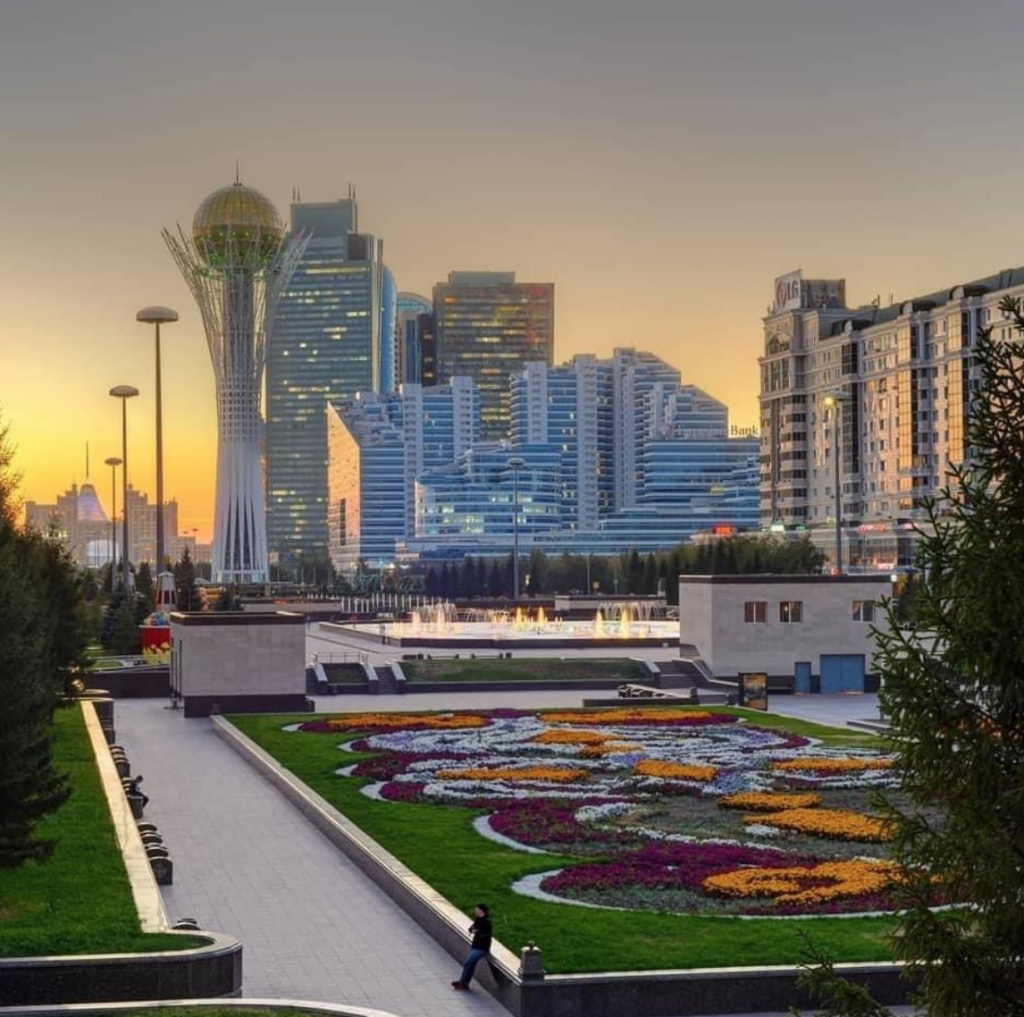KAZAKHSTAN’S FIRST 30 YEARS: DEVELOPMENT AND PROSPERITY
4 min read
Since its independence 30 years ago, Kazakhstan emerged as a business and investment hub in the global economy, ranking in 25th place in the World Bank’s Doing Business Index for 2020 and 34th in the 2021 Index of Economic Freedom.
Since 1991, the country attracted almost $400 billion in FDI, and the GDP increased 16-fold. Starting with shifting to a free-market mode at the dawn of its independence, Kazakhstan is today a focal point for business and investment with continuous reforms and initiatives to secure an environment to attract foreign investments from around the world.
The Astana International Financial Centre (AIFC) was established in 2018, a unique hub on the map of the financial world that brings together the best practices and opportunities offered by similar institutions around the globe – from New York City and London to Dubai. It is the first institution in the region to offer businesses a complete and comprehensive legal platform for attracting, implementing and protecting investments making Kazakhstan a financial hub in the region. AIFC jurisdiction is based on the principles, norms and precedents of the law of England and Wales (Common Law).
Despite the significant negative impact of the COVID-19 pandemic on the global economy in most countries, Kazakhstan was able to increase its foreign direct investment (FDI) in 2020 by 35 per cent, according to the Organization for Economic Co-operation and Development (OECD).
OCED said that indicators show that Kazakhstan had the most significant increase in FDI among 17 countries with transition economies and 34 landlocked countries. It added that this growth was stimulated by a timely response from the government to increase foreign investments in Kazakhstan, allowing it to record the highest FDI stock to GDP in the region.
In the first eight months of 2021, Kazakhstan recorded a pre-pandemic economic growth of 3%, a clear sign of the stable financial situation in the country, which can be traced back to emergency economic reforms and policies adopted by the President of Kazakhstan, Kassym-Jomart Tokayev.
The fact that Kazakhstan managed to keep its economy relatively resilient and resistant to external threats means that the country was able to introduce and implement an extensive list of political reforms under the Tokayev’s presidency since 2019.
For example, a new law on assemblies has made it easier to organise and participate in rallies and a 30 per cent quota for women and youth representatives on electoral party lists has been implemented to widen participation in politics.
To promote parliamentarism and encourage political pluralism, the number of members required for the establishment of political parties has been reduced by half, and the threshold for political parties to gain seats in the lower house of parliament has recently been lowered from 7 per cent to 5 per cent. These reforms are aimed at promoting the protection of human rights, as well as political plurality and competition in Kazakhstan.
President Tokayev also signed a decree in the field of human rights which aims to improve the mechanisms of interaction with the UN bodies including the UN Human Rights Council; to ensure the rights of the human trafficking victims; to improve the disabled people’s rights; the elimination of discrimination against women; the right to freedom of association; freedom of speech; enforcement and prevention of torture and others.
On September 1, the President announced extensive reforms in leading areas of development, with a clear focus on further social and economic development in Kazakhstan.
Tokayev set objectives for effective subsoil use, further privatization in the economic and business sector, better solutions in the agro-industrial sector, and new initiatives for digitalization of the economy and public sector.
These reforms, along with big facilitations and special privileges to foreign investments and companies, made Kazakhstan a hub for foreign investments from all over the world in Central Asia.
This business-friendly climate created new opportunities for Kazakhstan and its economic and business partners to develop bilateral relations further. Malaysia is one of the leading partners for Kazakhstan in the Southeast Asian region.
Despite all the challenges imposed by the pandemic, both countries were able to increase economic indicators and strengthen bilateral ties.
Kazakhstan represents a particular interest among Malaysian entrepreneurs and businesses in the fin-tech, construction, oil and gas sectors.
Malaysia was actively supporting the development of Islamic Finance in Kazakhstan, which history’s began in 2009 when the country was the first in in the region to adopt a special legal framework for Islamic banking and other financial services.
As of today, Malaysian companies and investors are implementing projects in Kazakhstan for over 1 billion US dollars. The AIFC is becoming a hub for Malaysian companies in IT, fin-tech and Islamic Finance. The volume of trade in 2020 amounted to 183 million US dollars for the first half of 2021 – $ 50 million.
Today, it’s evident that timely implemented measures paved a path for Kazakhstan’s success in nation-building and appeared as a dynamically developing, market-oriented, secular state, which uniqueness is marked by its political stability and economic prosperity.
President Tokayev’s government continues to implement a significant package of economic and political reforms as part of his policy towards developing the social, economic and political life of Kazakhstan.





